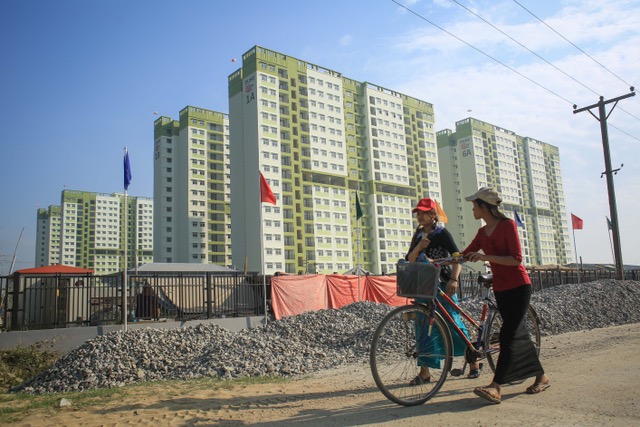Due to the coronavirus outbreak in China – Myanmar’s main trading partner – bilateral trade has mostly halted and Myanmar is currently losing millions of dollars per day on lost border trade.
But away from medical fears, it has been a busy week in finance.
This week a joint venture was revealed between the Hong Kong power supplier, the VPower Group, and a state-owned Chinese giant to build three gas-fired power stations in Myanmar. Meanwhile, Yangon’s regional government also leased US$746 million (1.1 trillion kyats) worth of land to a Malaysia conglomerate for housing and other developments in the city.
In an effort to stabilize the kyat, the Central Bank of Myanmar (CBM) has bought US$51 million (74 billion kyats) this year. And $500 million (730 billion kyats) of foreign investment was approved by the Myanmar Investment Commission (MIC) last week.
Central bank backs the kyat
The CBM has bought about $51 million on the auction markets from Jan. 3 to Feb.13 in a move to stabilize the kyat.
The central bank started buying US dollars on Jan. 3 and by Feb. 13, the auction average exchange rate was 1,450.6 kyats per dollar, according to the CBM.
The volume was low compared to the foreign currency traded on the domestic market, despite the CBM buying dollars since 2019, according to the Myanmar Times.
Joint venture set to build power stations
Hong Kong-listed VPower Group International Holdings Limited, one of the largest investors in Myanmar’s electricity sector, this week said it had set up a joint venture with the state-owned China National Technical Import and Export Corporation (CNTIC) to build three gas-fired power plants in Myanmar.
The projects are due to add 900 megawatts (MW) of capacity at an estimated cost in excess of $800 million (1.2 trillion kyats).
The joint venture was approved by the MIC last month for three foreign-owned power projects to generate and sell electricity within Myanmar.

Malaysian conglomerate to redevelop Yangon
The Yangon regional government this week has leased $746 million worth of land to the BDS Smart City Co. Ltd, a subsidiary of Berjaya Land Bread (Bland), one of the largest conglomerates in Malaysia for developing a housing and mixed-use project in Yangon.
The Malaysian firm will undertake the 74-hectare project in Dagon Seikkan Township.
BDS said it would build affordable housing, medium-priced apartments, high-end condominiums, shops, hospitals, schools and community centers.
BDS won the tender for the project in May 2019 and was given exclusive rights to the land for 50 years, extendable for two additional terms of 10 years.
Coronavirus crushes border trade
During the past two weeks, Myanmar’s trade has fallen by several hundred million dollars, with the impact mostly being felt by traders, farmers, producers and workers since the country’s largest trading partner shut its doors.
Myanmar’s main exports to China – rice, sugar, corn watermelon, muskmelon, shrimp, crab and eel – have been halted at the major border checkpoints in Shan State’s Muse and Chinshewhaw, and Kachin State’s Kanpiketi.
“Around 95 percent of our business has halted. It’s the first time this has happened. We have never had this kind of experience in the past,” U Min Thein, vice chairman of the Muse Rice Wholesale Center, told The Irrawaddy this week.
Myanmar’s Ministry of Commerce said the country had been losing more than $15 million (21 billion kyats) per day since Jan 27, due to the virus.
Foreign investment approved
The MIC on Feb. 13 approved over $500 million worth of investment in 12 new projects and extra investment in 19 existing schemes.
“The latest inflow exceeds $500 million and over 6,600 jobs are to be created,” tweeted the MIC chairman U Thaung Tun, who is also the investment minister.
The Directorate of Investment and Company Administration (DICA) said that over the last year, Singapore – which is often used as a conduit for investment by other countries – topped the investor list, followed by China and Thailand in third.

















